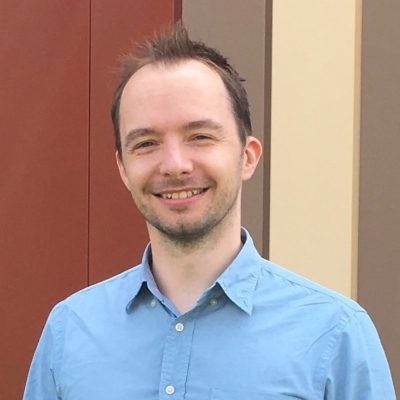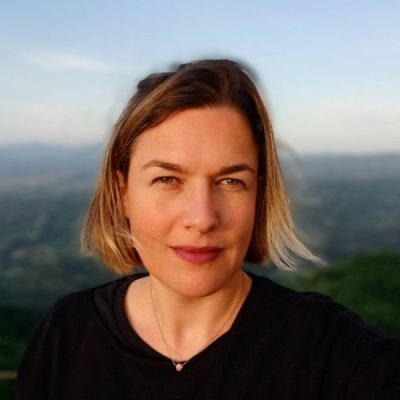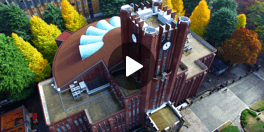December 6, 2022
Lecture by Drs. Richard Carter-White and Maartje Roelofsen “Embodiment, Deferral and (Dis)inhibition: Learning and Teaching Geography with VR”
B’AIグローバル・フォーラムでは、マッコーリー大学(豪州)のDr. Richard Carter-Whiteとカタルーニャ・オベルタ大学(スペイン)のDr. Maartje Roelofsenをお招きし、アウシュビッツ・ビルケナウ州立博物館でのVRを用いた教育研修の効果についてご講演いただきます。ご関心のある方はぜひご参加ください。
The B’AI Global Forum will hold a talk by Drs. Richard Carter-White and Maartje Roelofsen entitled “Embodiment, deferral and (dis)inhibition: learning and teaching geography with VR” on December 6, 2022. The details are as follows.
開催情報/Date & Venue
日時:2022年12月6日(火)16:30~18:00(日本時間)
Date: December 6, 2022 (Tue), 16:30 ~ 18:00 (JST)
形式:ハイブリッド
Venue: On-site & Online Hybrid
以下のフォームより、対面とオンラインのどちらでのご参加かを選択の上、お申込みください。参加形態により申し込み期限が異なりますので、お気を付けください。
Please register and select your type of participation (on-site or online) from the application form below. Please note: The registration deadline for on-site and online participation are different
【対面/On-site】
東京大学Beyond AI研究推進機構 本郷拠点(本郷キャンパス附属病院内)
11月29日(火)までに、上記フォームよりお申し込みください。
※会場については、申し込み終了後に詳細をご案内します。
Venue: Institute for AI and Beyond (The University of Tokyo, Hongo Campus)
Please register by 29th November 2022 from the registration form above.
※ We will email you directions to the venue after the registration is closed.
【オンライン/Online】
Zoomミーティング
12月4日(日)までに、上記フォームよりお申し込みください。
※ ZOOMのURLは前日12月5日(月)に記載いただいたメールアドレスにお送りします。
Venue: Zoom Meeting
Please register by 4th December 2022 from the registration form above.
※ We will send you the ZOOM URL on 5th December (one day before the event) to your registered e-mail address.
使用言語:英語(通訳なし)
Language: English
講演者/Speakers
 Dr. Richard Carter-White(Senior Lecturer in Human Geography at the School of Social Sciences, Macquarie University)
Dr. Richard Carter-White(Senior Lecturer in Human Geography at the School of Social Sciences, Macquarie University)
Dr. Richard Carter-White is a Senior Lecturer in Human Geography at the School of Social Sciences, Macquarie University. His research sits at the intersection of cultural and political geography, and provides a geographical perspective on structures, spaces, representations and experiences of violence (both political and environmental). He is currently engaged in projects investigating the spatialities of the concentration and refugee camp, post-disaster communities and landscapes in Japan, and the implications of digital technology for sites of difficult heritage.
 Dr. Maartje Roelofsen (Postdoctoral Researcher, Faculty of Economics and Business, Universitat Oberta de Catalunya, Spain)
Dr. Maartje Roelofsen (Postdoctoral Researcher, Faculty of Economics and Business, Universitat Oberta de Catalunya, Spain)
Dr. Maartje Roelofsen holds a PhD in Sustainable Urban and Regional Development from the University of Graz in Austria. Her research has examined digital transformations within the realm of tourism, urban space, and geography education. Her current research project investigates how users of short-term rental platforms encounter and respond to digital modes of governance. She also explores the organisation and transformation of domestic work through digital platforms within the hospitality and tourism sector. More recently, she has made contributions to debates in geography and education on the use of digital technologies in learning and teaching. She is an Associate Editor of the journal Tourism Geographies and has recently published a monograph on Hospitality, Home and Life in the Platform Economies of Tourism with Palgrave Macmillan.
講演要旨/Description
Embodiment, Deferral and (Dis)inhibition: Learning and Teaching Geography with VR
Virtual reality (VR) is increasingly claimed to hold significant potential for pedagogical applications in University education. We draw on the burgeoning field of digital geography to critically examine this claim, with reference to results from a two-year research-teaching project based on a postgraduate VR field trip to the Auschwitz-Birkenau State Museum. We found that VR technology may work as a (dis)inhibitor, providing users with a sense of social and temporal freedom to explore sites but in combination with a new set of spatial and perceptual constraints. Importantly, we found that learning with and through VR technology required active bodily adaptations, raising questions of embodied capacities and their inequalities. We conclude that, in this context, VR works most effectively if conceived not as a journey into a self-contained virtual realm, but instead as a spatial ‘prompt’ designed to provoke new questions for students already on the path to developing geographical understandings and imaginations of specific sites.
モデレーター/Moderator
板津木綿子(東京大学大学院情報学環教授)
Yuko Itatsu (Professor, Interfaculty Initiative in Information Studies, The University of Tokyo)
主催/Organizer
東京大学Beyond AI研究推進機構B’AIグローバル・フォーラム
B’AI Global Forum, Institute for AI and Beyond, The University of Tokyo
後援/Supported by
東京大学Beyond AI研究推進機構
The Institute for AI and Beyond, The University of Tokyo
お問合せ/Inquiry
東京大学B’AIグローバル・フォーラム事務局
B’AI Global Forum Office
bai.global.forum[at]gmail.com([at]を@に変えてください/Please change [at] to @)

